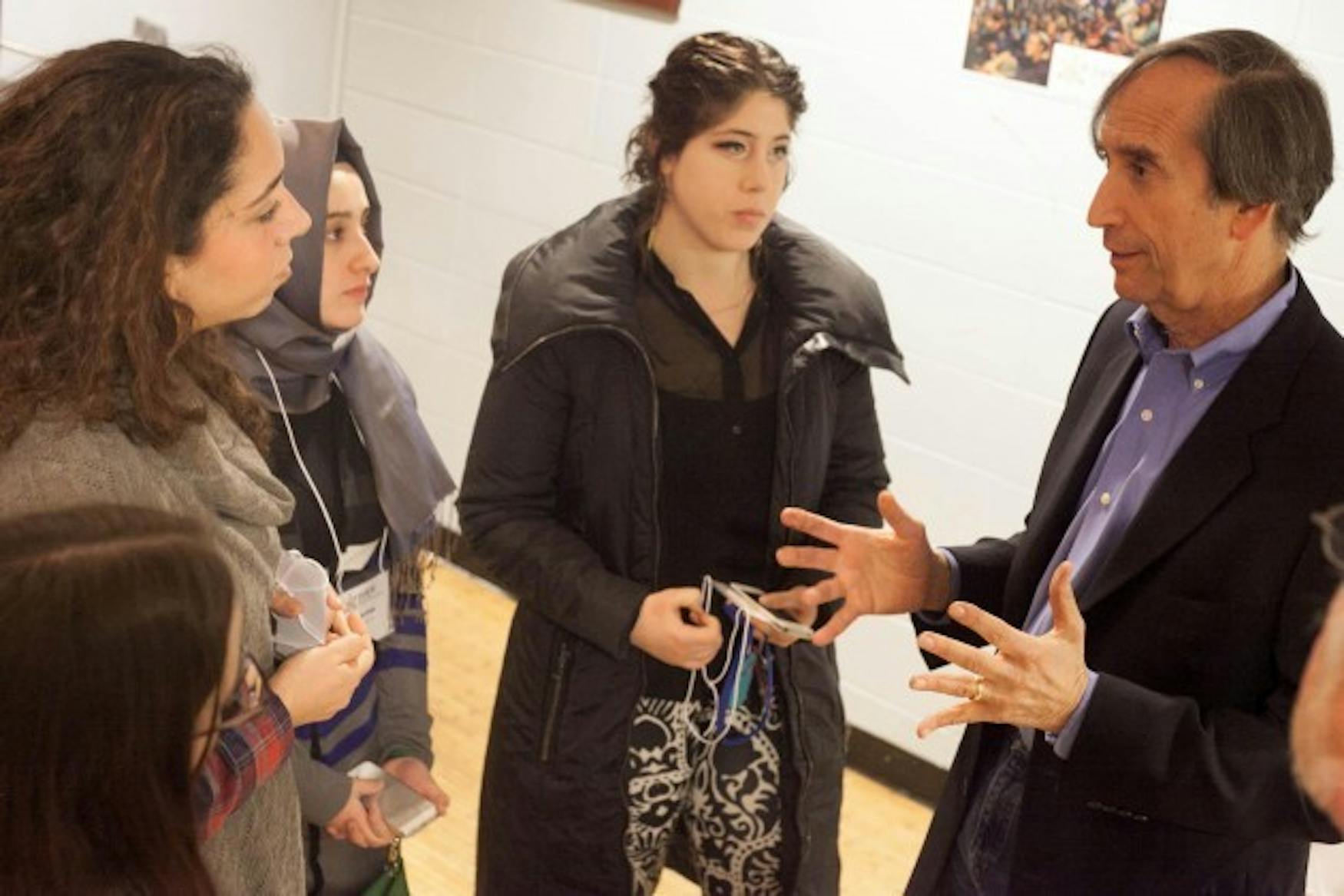bVIEW conference highlights discussion
Aaron David Miller, Middle East advisor to six U.S. Secretaries of State, delineated five myths he believes to exist widely in the realm of Israel-Palestine discussion in his keynote speech at last weekend's Brandeis Visions for Israel in an Evolving World conference. The conference, held on the Brandeis campus and attended by more than 200 students from Brandeis and other area universities, was the first event of its kind to be held by bVIEW.
Miller began his talk by emphasizing the civility that becomes lost in Arab-Israeli dialogue, and continually reminded the audience that a lack of balance or weighing of each side's claims inhibits any amount of progress in the perpetually heated situation.
While polarity and refusal to budge on the issues is characteristic of discourse on Israel, Miller still believes that ultimately carelessness becomes the problem. Since they feel removed from "the center of conflict" people express their opinions without caution and a sense of responsibility of what impact their voices have.
The first myth that Miller addressed is that "U.S.- Israeli interests are congruent and must be." Miller refuted this by speaking of the many dissimilarities between the U.S. and Israel, including their respective histories and population sizes.
Secondly, he said the notion that American Jews virtually control U.S. policy toward Israel is "[t]he single most fallacious assumption that is offered up." However, the idea that they have a non-existing role in policy is also wrong.
He asserted that instead of specific interest groups, it is an overall American "value affinity," or agreement on core values, with Israel that guides our policy.
He named the belief that U.S. support of Israel is a cost-free enterprise as the third myth. "There are a lot of...rationally angry and irrationally angry [people] who accuse us of blind obeisance to a tiny state that in their judgment doesn't share American interest," he said.
The last two myths lay in the still-existing sentiment that President Obama is an enemy of the state of Israel, and in the belief of a disconnected nature of the President's relationship with Israel. These beliefs, he said, are founded on Obama's lack of an instinctively biased, pro-Israel response to issues.
Although Miller said there now exists the "most dysfunctional relationship between an Israeli prime minister and an American president," he added that the way the President thinks is in the "color of democracy" versus an emotionally driven black and white perspective that was held by the past two presidents.
"Those myths do trickle down, even if it's from our parents' generation...looking at the speech, people really internalize those five myths and really think about how they relate to those, if they actually think about those, or their friends think about them," said Avi Popack '14, one of the students who stepped up to the microphone to ask Miller questions at the end of his address.
Does Miller foresee a cease of conflict in the future?
"We are stuck in a region that we cannot fix and cannot leave," he said. At this point he cannot imagine a peace that would let go of what he says are now five main agreement disputes.
Finally, Miller advised the students to take two things into consideration. First, he gave general advice to aspire to a combination of passion and expertise in one's career.
"If you are lucky enough to get on such a track, grab it," Miller said. And lastly, that truth is not easy to see, and therefore if one sets one's views firmly on the Arab-Israel conflict, an understanding of Israel and their position will not be attained, while also "surrender[ing] any real capacity to do anything about it."
"Mr. Miller really gave ... the most nuanced perspective of what we're doing here, but he transferred it to a global vision and he told us...the left and the right have these extreme positions but there's no balance," said Ryan Yuffe '15, co-president of Brandeis Israel Public Affairs Committee (BIPAC) and a member ofwbVIEW. "I think that's exactly what we're doing here at Brandeis, we're trying to bring [balance] while still being able to advance our own ideas and visions."
*



Please note All comments are eligible for publication in The Justice.